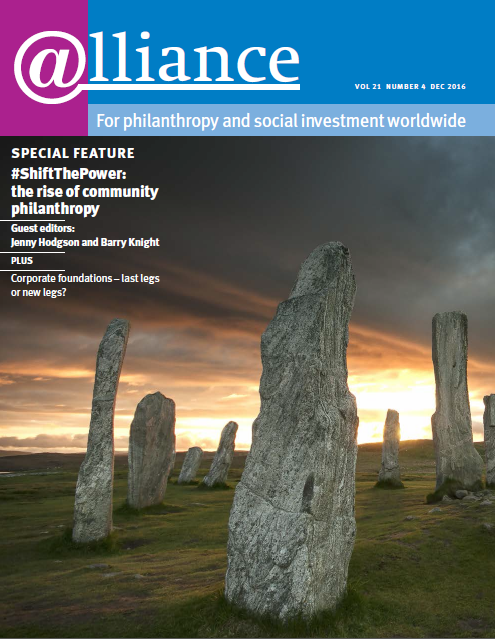The topic at the last Alliance breakfast club, How much influence does philanthropy have? provoked much debate. One of the speakers, Linsey McGoey, used the Chan Zuckerberg Initiative to illustrate her argument. The author of No such thing as a free gift contended that the legal structure chosen by Priscilla Chan and Mark Zuckerberg helps them evade scrutiny and gain unchecked power. For their part, the tech philanthropists say their motivation is to ‘cure, prevent or manage all disease within their children’s lifetime’ rather than build personal influence.
We need funders – grantmakers as well as philanthropists – to be vocal and bold.
What I see in my own UK-based reality is very different. Unprecedented welfare cuts have led to an increase in social need across the country, many brilliant individual charities are fighting to survive, and a battered charity sector is struggling to find its voice. No single organization can address complex problems like mental ill-health or homelessness. Our context calls for more collaboration, more leadership.
It also means we need funders – grantmakers as well as philanthropists ¬– to be vocal and bold. Having funded places or issues for decades, many grantmakers and philanthropists have valuable experience and insights to contribute. Yet they shy away from public debate. Funders like The Sutton Trust, which takes a stance on the importance of education for advancing social mobility, are few and far between.
Funders don’t only have wealth at their disposal. They also have a wealth of knowledge and, crucially, the opportunity to exert influence. Let’s see them make more of these valuable assets.
Lena Baumgartner
Deputy director of research & consulting, New Philanthropy Capital
On the same topic: ‘Give power to grantees‘ by Angela Seay, ‘Choose carefully: thoughts on philanthropy’s bankers‘ by Karin Jestin, and ‘Democratize philanthropy‘ by Eugenie Harvey.






Comments (0)